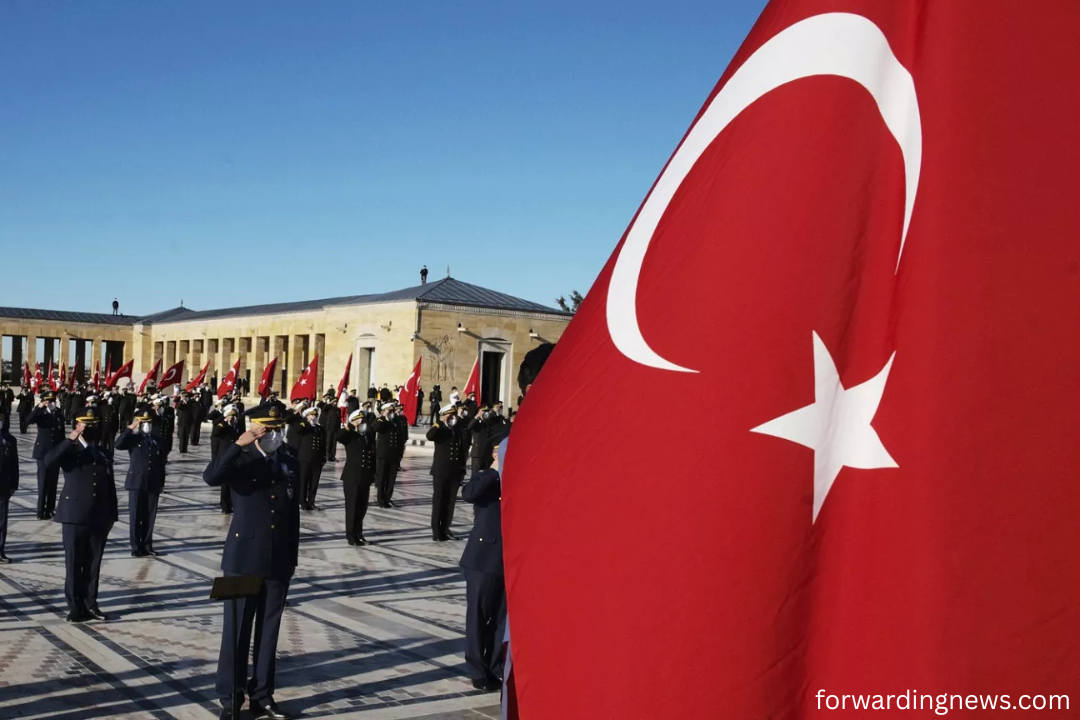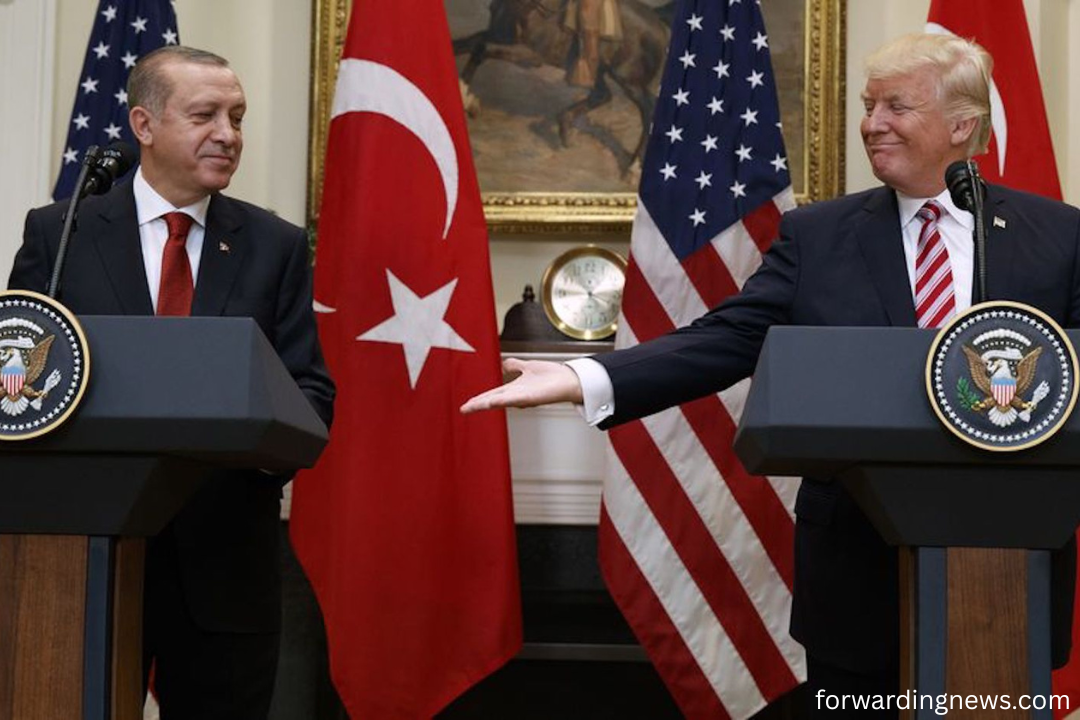Türkiye’s poised to be fit from a significant shift in international policy. President Recep Tayyip Erd” ğan confirmed that the UniTürkiye’ss is preparing to ease long-term ending sanctions. This announcement comes as relations between the twTürkiye’slies show signs of thawing after years of tension in oTürkiye’sse procurement and regional military cooperation.
President Erdoğan revealed the development during a press briefing, stating that recent talks with U.S. officials were productive and that a more constructive dialogue regarding Türkiye’s Defense Sector is now underway.
Background of Sanctions on Türkiye’s Defense Sector
The United States imposed sanctions on Türkiye’s Defense Sector in response to Ankara’s acquisition of the Russian-made S-400 missile defense system. The move triggered provisions under the Countering America’s Adversaries ThTürkiye’sctions Act (CAATSA), restricting exports and placing limitatTürkiye’sey individuals and agencies in Türkiye’s military indusTürkiye’syears; these sanctions hamperedAnkara’swth and international partnerships of Türkiye’s Defense Sector, complicating joint ventures and technology transfeAmerica’sestern defense firms.
Signals of Policy Change in Washington
Recent diplomatic meetings between Turkish and U.S. officials hTürkiye’stedly led to a reevaluation of the sanctions. Sources suggest that Washington acknowledges Türkiye’s Türkiye’s importance in NATO, especially amid rising geopolitical tensions in Eastern Europe and the Middle East.
Easing restrictions on Türkiye’s Defense Sector could be part of a broader recalibration to strengthen allied capabilities and supply chain independence in the defense arena. Erdoğan’s announcemeTürkiye’s not yet confirmed in detail by U.S. authorities aligns with this emerging strategic calculus.
Strategic Importance of Türkiye’s Defense Türkiye’srkiye’s Defense Sector has become a pillar of the country’s national pride and technological independence. Over the past two decades, Türkiye hErdoğan’smpressive strides in domestic military production, developing indigenous drones, armored vehicles, naval platforms, and missile systems.
TheTürkiye’sor easing of U.STürkiye’sns is expected to accelerate the sector, allowing for increased access to components, joint projects, and potentially the export of Turkish-made defense systems to U.S.-allied nations.
Economic Implications for Türkiye’s Defense Industry
Easing sanctions will have a substantial economic impact. Türkiye’s Defense Sector contributes billions to the national economy through exports and defense manufacturing. The industry employs thousands of engineers, technicians, and specialists across firms like ASELSAN, TAI (Turkish AerospaTürkiye’sries), and Roketsan.
Restoring cooperation with U.S. suppliers and global deTürkiye’sworks could unlock significant growth opportunities, further elevating Türkiye’s Defense Sector on the world stage.
U.S. Concerns Over Strategic Balance
Despite the easing of tensions, Washington remains cautious. Analysts note that the U.S. still has concerns over Türkiye’s dual engagement with NATO and Russia. The balance between maintaining alliance cohesion and responding to Türkiye’Türkiye’sdent foreign policy remains delicate.
However, the easing of sanctions on Türkiye’s Defense Sector may be a calculated step to encourage alignment with NATO priorities, especially as conTürkiye’s Ukraine and the Middle East demand a unified front among allies.
NATO Dynamics and Türkiye’s Military RoleTürkiye’ss geographic location gives it strategic control over critical zones such as the ETürkiye’sditerranean, the Black Sea, and the Middle East. The country also possesses one of NATO’s largest standing armies. As such, Türkiye’s Defense Sector plays an essential role in regional and alliance-based military planninTürkiye’sing. Full cooperation between U.S. and Turkish defense entities could improve interoperability, joint readiness, and coordination in multi-national exercises and operations.
NATO’sons from Industry Leaders
Top execuTürkiye’sTürkiye’s Defense Sector welcomed Erdoğan’s announcement, stating that renewed collaboration with the U.S. would create momentum for innovation and international market expansion.
Several firms are reportedly preparing proposals and feasibility studies for future joint ventures with American defense contractors, contiTürkiye’sn official confirmation aErdoğan’supdates from Washington.
Potential Projects and Joint Initiatives
If the easing of sanctions proceeds as expected, Türkiye’s Defense Sector could revive several previously stalled initiatives. These may include:
- Joint drone development programs
- Advanced avionics collaborations
- Upgraded NATO-standard communication systems
- Defense electronics exports to U.S.-friendly nations
Such collaborations would not only enhance Türkiye’s capabTürkiye’sut also support broader NATO technology standardization.
Domestic Innovation and Defense Independence
Even under sanctions, Türkiye’s Defense Sector advanced its domestic research and development capabilities. The development of the Bayraktar TB2 and Akıncı drones demonstrated Türkiye’s abilityTürkiye’sate under pressure.
Now, with the potential easing of sanctions, the sector is expected to combine domestic innovation with international tTürkiye’s access, creating a hybrid model of self-reliance and strategic cooperation.
Future Outlook for Türkiye’s Defense Sector

Türkiye’s Defense SectorTürkiye’st a pivotal juncture. The likely easing of U.S. sanctions marks the beginning of a new chapter in its international integration. With sustained investment, skilled human capital, and a renewed diplomatic outlook, Türkiye could become a top-tier exporter and defTürkiye’saborator within Türkiye’sdecade.
However, this future depends on continued diplomatic engagement, adherence to alliance commitments, and transparency in military partnerships.
Frequently Asked Questions (FAQs)
Why were sanctions imposed on Türkiye’s Defense Sector?
Sanctions were imposed due to Türkiye’s purchase of Russia’s S-400 missile system, which violated U.S. CAATSA provisions.
What impact did the sanctions have?
They limited technology transfer blocked certain exports and restricted partnerships with key Turkish defense firms and officials. HoTürkiye’ssing sanctions benefit Türkiye’s Defense SectorTürkiye’s restore inteRussia’sl collaborations, allow access to critical components, and potentially increase exports and innovation.
Is the U.S. officially lifting all sanctions?
No official policy document has been released yet, but President Erdoğan has indicated progress in talks suggestingTürkiye’ss imminent.
Which companies are involved in Türkiye’s Defense Sector?
Major firms include ASELSAN, Roketsan, Turkish Aerospace Industries (TAI), and STM.
What technologies does Türkiye’s Defense Sector produce?
The sector develops drones, missile systems, radar equipment, naval platforms, and cybersecurity solutions.
Will this move affect NATO operations?
LikelTürkiye’s strategy is to improve cooperation, which will enhance interoperability and strengthen NATO’s southeastern flank.
How has Türkiye’Türkiye’s Sector evolved recently?
It has become more self-sufficient, investing heavily in domestic R&D and emerging as a global player in drone and missile technology.
Conclusion
Türkiye’s Defense Sector is on the verge of a significant transformation. With the United States’s signNATO’s willingness to ease sanctioTürkiye’sector sector may soon regain its full potential for international cooperation and technological advancement. This shift could reinforce Türkiye’s position as a regional defense powerhouseTürkiye’stal player in NATO’s security landscape. For industry leaders, allies, and observers alike, this moment marks a renewed opportunity to harness Türkiye’s defense capabilities for collective global stability.

